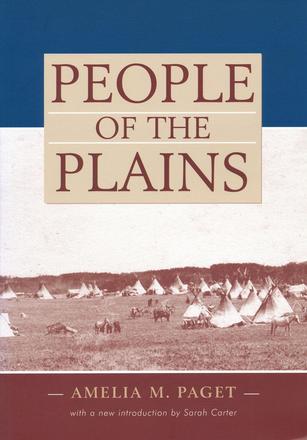
People of the Plains
Description
Amelia McLean Paget was born in 1867 at Fort Simpson, in what is now the Northwest Territories. Her father, William McLean, was a Scot involved in the fur trade and her mother, Helen Murray, belonged to an illustrious Metis family which had been active in the fur trade for generations. Amelia’s life spanned some of the most tumultuous events in the West, including the disappearance of the buffalo, the North-West Resistance, and the establishment of the reserve system. She had a more sympathetic appreciation of Aboriginal culture than is found in many of her contemporaries. In People of the Plains(first published in 1909), she records her observations of the customs, beliefs, and lifestyles of the Plains Cree and Saulteaux among whom she lived. She died in Ottawa in 1922.